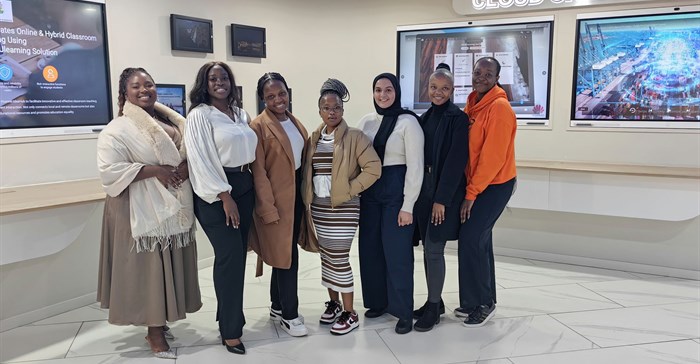
Top stories

ICTToo little, too concentrated: why AI startup funding in Africa needs rethinking
Claire Zanuso 7 hours





More news



ESG & Sustainability
Redisa calls on govt to fix South Africa’s “broken” waste management system
























These young graduates, all in their early 20s, are entering an industry where their careers could be cut short due to systemic challenges. This mirrors a troubling historical trend: talented women in tech often see their careers plateau prematurely.
It is vital to transform this landscape to retain the talent that companies like Huawei cultivate.
This year's International Girls in ICT Day theme, "leadership", is particularly relevant. We must nurture leadership qualities in young women to help them navigate and shape the future of technology in South Africa.
Leadership transcends titles; it's about inspiring change, advocating for diversity, and relentlessly driving innovation.
Nqubeko Tshabalala, Tina Mtonga, Nozipho Mtsweni, Puseletso Mogapi, Saudah Harrar, and Amogelang Monageng are a testament to South Africa's bright future. These young professionals carry both their academic credentials and unwavering ambition.
Through conversations at Huawei's roundtable, they offered wisdom gleaned from carving their own paths, overcoming adversity, and embracing the complexities of life in the tech sector.
The tech industry's focus on fostering women in ICT is a positive example. Initiatives like the Huawei graduate programme emphasises employment equity and equal pay for all graduates.
There is further opportunity in the company's ICT Academy and 'Seeds for the Future' to equip young people and provide global insights.
This holistic approach addresses representation and pay gaps, positioning Huawei as a champion of diversity and sustainability in tech.
It's heartening to witness these young women supporting one another, dispelling the myth of female rivalry in male-dominated spaces. Their vision of leadership is human-centric – where empathy, reliability, and clear communication are essential.
They envision a workplace where both their technical and emotional strengths are valued.
Huawei's commitment to innovation provides these graduates with fertile ground to push tech boundaries in South Africa. This focus not only creates cutting-edge products but lays the groundwork for them to innovate for the country's future.
To attract more women to ICT, opportunities need to be accessible and visible. These Huawei graduates found their pathways through various means - scholarships, mentorship, and career expos.
Their stories emphasise the need to make opportunities for STEM careers widely understood in South Africa
By breaking down stereotypes and creating space for women to thrive, the diverse talents these graduates embody can transform the industry. Puseletso's call for empowering young women to see themselves as leaders echoes the sentiment that drives these trailblazers.
The future belongs to a tech landscape in South Africa where women like Saduah and Nozipho are leaders, not exceptions. These graduates are reshaping the industry, ensuring inclusivity, and positioning South Africa at the forefront of technological advancement.
Their journeys are a blueprint for a world where gender does not dictate opportunity or limit a career's lifespan in ICT.
